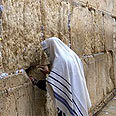
Cities most essentially belong to their residents. The residents shape the character of cities in which they dwell. The cities, in return, provide them shelter, employment, community and identity. Yet Jerusalem defies this traditional model.
While 800,000 individuals can be labeled "residents," there are literally millions of additional far-flung stakeholders around the world that feel a certain claim to the city. These diverse stakeholders include the religious establishments of the three monotheistic religions, the United Nations, world Jewish organizations, NGOs, international media and so many more.
Related op-eds:
How on earth can such a unique city run? Jerusalem poet Yehuda Amichai once wrote that "Jerusalem does not need a mayor, but rather a ring master in a circus." He meant that Jerusalem is by no means a "normal" city to be managed in conventional ways. It is a totally different kind of urban domain that requires special treatment and stewardship.
Throughout the centuries the sentiment towards Jerusalem was channeled through liturgical, artistic and poetic expressions longing for a lost beloved; a city no longer. But what happens when Jerusalem becomes a real place again? In modern times, and particularly after the establishment of the State of Israel, the Jewish people are looking for a new language that will preserve the ancient sentiments while at the same time engages Jews with Jerusalem's new and challenging realities.
For this to happen, Jerusalem's current residents need to extend a hand to Jews around the world. The message should be this: "While you don't live in Jerusalem, you do indeed have a vital share in this city." Nice words, but what does it mean? How do we move this statement from declaration to action?
A new grassroots coalition, brewing for the past year, has been officially launched this month in Jerusalem specifically to address this purpose. Yeru-Shalem, a coalition of organizations and individuals was recently founded to advance Jerusalem as an open and inclusive city.
Member organizations, with well over 100,000 constituents in their ranks, represent a wide range of agendas such as art and culture, Jewish pluralism and renewal, environment, emerging communities, young adults and more. The Yeru-Shalem Coalition is further committed from the outset to involving Jews from around the world to work with Jerusalem's grassroots communities on a shared agenda for the city's future.
Opening doors
By creating direct connections we intend to open doors to Jews of all backgrounds who see Jerusalem in some way as their home. This is not a mere hospitality or tourism venture. It is a call for partnership! It is well known that Jerusalem is facing serious demographic, economic and political-ethnic challenges. The call is to work with us on effective ways for ensuring that Jerusalem will continue to be an open, embracing and dynamic city.
How will this happen? First, we need to educate ourselves. So many people around the world, Israelis included, lack basic information about the actual realities of Jerusalem. Jerusalem is perceived by too many as some kind of a "Jewish Disneyland," or a city sealed for all time in archeological and historical stone, possessing first rate tourist attractions and an aura of holiness. It is this paradigm that we are committed to changing, as we find ways to connect world Jewry to the real life of the city. Moreover, we need to create a network of people around the world who care about Jerusalem and will translate their interests and concerns into action.
Our agenda is ambitious but long overdue. Throughout Jerusalem, together with our partners from Diaspora Jewry, we will work tirelessly to preserve the public sphere (especially in the area of exclusion based on gender, ethnic background or religious practice); connect Jews and Arabs as a true way of uniting our city; no less so, connecting Jews and Jews who rarely speak to each other; and providing family-oriented cultural activities to get people out of their living rooms and onto the vibrant streets of our town.
Residency in a city is a clear-cut matter entailing specific tax requirements, civic obligations and so on. The second level of affinity is based on visits to the city, the more the better. We have begun work this month to create a new type of affiliation with Jerusalem that elevates individuals beyond mere tourist status, although still less than being a resident.
Jerusalem is a concept, a commitment, a state of mind - that extends far beyond its municipal boundaries. This new process must be manifested in a new type of identity and practice that will connect world Jewry to Jerusalem through education and action.
Dr. Elan Ezrachi, an educational consultant to international Jewish organizations, is a founding member of Yeru-Shalem















